The Meaning of a Birthday
Tags: Tu B'Shevat, Living Israel, Family
By Dr. Elana Heideman
When I was a little girl growing up in Louisville, Kentucky, Tu B’Shevat was celebrated in the typical ways. A talk about the importance of trees, some environmental messages (it was the 80s after all), and planting some parsley that would grow by Passover, all trying to connect the dots of Jewish identity together. While the annual festivities are a nice childhood memory, I will never forget the first time it had real significance to me: on a family trip to Israel in my late teens with my Grammy Esther.
As we drove through Tel Aviv, she suddenly burst out with excitement, “Oh my goodness! I think I planted those trees! I remember planting those trees right there!” She went on to tell us that, growing up in Palestine, every child, every school, every family took part in the planting of trees, keeping alive a tradition that seemed as ancient as the soil in which they were planting - a tradition that continues until today.
Born in 1924 in Rovno, Poland (now Ukraine), her father Shraga brought the whole Vorona clan to the Holy Land when Grammy was only 9 months old. Ironically, she doesn’t actually know her real birthday on the secular calendar, but she will always know that she was born on Tu B’Shevat, which her father made a big deal of every year when they went planting. Not only were they celebrating a new year of life for the trees of Israel, but also for Esther – always making my own celebration of Tu B’Shevat that much more special.
Grammy ended up moving to the US in 1946 to marry my Grampa Max, a soldier in the US Army that visited the Land of Israel on leave and fell in love at first sight. All these years later, as she turns 99 years young, she still reminds people that she isn’t Israeli, and that the only use of the term Palestinian referred to the Jews. She is very proud of her family history, her connection to this land, and her Sabra grandchildren with whom she still speaks with in Hebrew, helping them to feel close to her even though she lives so very far away.
Being in Israel for almost 18 years, I feel my life is intertwined with hers and the legacy her own father and mother set forth when they came here all those years ago. I have told my kids about the trees in Tel Aviv that Savta Esther planted when she was a child. And we have now been planting our own every year since they were born, as I make sure they understand that we wouldn’t have this chag without the land and the history to which we are connected. And we must make sure that all Jews in the world know that the two cannot be divorced one from another.
Then again, they sing Eretz Yisrael sheli yafa v’gam Porachat all day… (My Land of Israel is beautiful and blossoming… believe me – when you hear the song, you, too, will become addicted.)
In recent years, Tu B’Shevat has become increasingly popular as an opportunity for community celebration. In a world where extremism is encroaching upon us from every direction, this type of innocent connection is exactly what we need . It is a chance to return to the simplicity of our green roots, an informal and fun way to express the Jewishness so many feel, even if they cannot always explain why. But as we move farther away from the stories of the past that helped to formalize Tu B’Shevat as a part of Jewish life, it becomes even more important to relearn those tales taught by our predecessors and to revive the depth of meaning that is imbued in each of these holidays.
Tu B’Shevat has a particular beauty to it, in that it is not confined to a particular religious belief or practice – it is a celebration of the connection of the Nation of Israel to the Land of Israel through the tangible symbols of her fruits and her importance to our collective identity, and a celebration of rebirth and renewal after the harshness of winter. It allows even those who have no personal relationship with Judaism from an observance or theological point of view are able to feel inspired by this holiday of trees. And all the more so when it is connected with the nostalgia so many feel when they think about the trees of Israel that they may have helped to plant over the years.
Whether literally or in their hearts, the seeds we sow in our lifetime are a transformative part of our family history - our individual families, and our collective family as the Nation of Israel.
When the trees of Israel started to be replanted with the help and support of Jews throughout the Diaspora, the dream was that we could grow roots in a land that our ancestors had prayed for and dreamt of. Now, we fear discussions about Israel because they have become convoluted in politics and polarization, conflict and controversy. We cannot even share an open discussion on why we need to overlook the divisions between us without reactionary defenses rising up between our peers, our children, our grandchildren.
But that nostalgia that remains within - that is the answer. Because it is crucial that the Jewish ancestral connection passed down to each one of us is carried on to the next generation. That we do not allow the current political motives to damage our ancient heritage and destiny. And still, for many, the harsh headlines, ongoing conflict, and overwhelming confusion over the facts makes it a challenge to feel Israel at home.
Tu B’Shevat is a chance to remind ourselves of the renewal that each one of us also needs to carry onward - that of the roots that bind us, that of the trees of our biblical homeland, that of the ancestors who walked the land before us. Without it, those determined to deny our history and erase our existence and our memory will succeed in convincing our descendants that our story does not matter. That Jewish rights of 4000 years do not matter.
Whether hosting a seder, reading on their own, planting or sponsoring the planting of a tree, planting at home, creating a celebratory piece of art, or just enjoying an informal gathering of friends, find your way of celebrating. Raise a glass of Israeli wine and enjoy planting a touch of Israel at home and celebrating a connection that has withstood the test of time, distance, destruction and exile.
What better way to ensure Israel is a part of your Tu B’Shevat celebration!
Even today, there are Tu B"Shevat materials on everything from environmental to spiritual interpretations and a slew of arts and crafts activities, all of which focused on a very generalized interpretation of this New Year of Trees. So little of what did exist – and there was A LOT – had anything to do with Israel, the very land to which this holiday is associated.
Israel is mentioned in passing – included in the historical reference as to why we have this new year that no other peoples have. Sure, there are plenty of Arbor Days honored by various countries and cultures, but Tu B’Shevat is so special, so unique, it even has its own seder.
For those unfamiliar, Tu B’Shevat is celebrated on the 15th (TU = ט”ו) day of the Jewish month of Shevat שבט. This is one of the 4 New Years mentioned in the Mishnah. Known in Israel as “Chag Ha'Ilanot” (Ilan אילן= tree), we honor this day when budding fruit enters a new year of life and the first bulbs of spring are beginning to bloom.
So Download your Tu B'Shevat Seder today and Plant Israel in your home and in your heart!
Celebrate your connection to Israel this Tu B'Shevat!
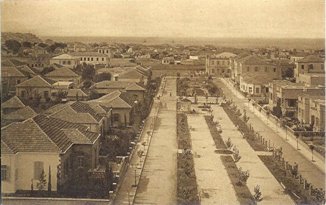
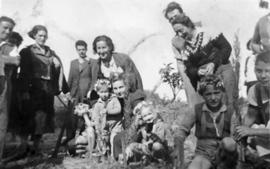
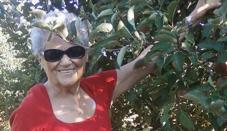
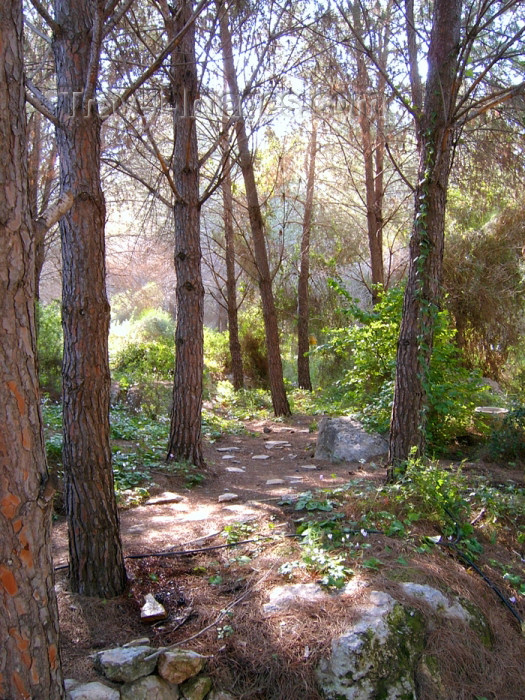


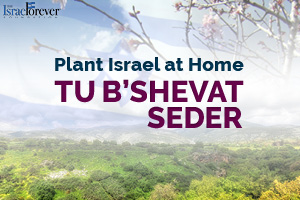
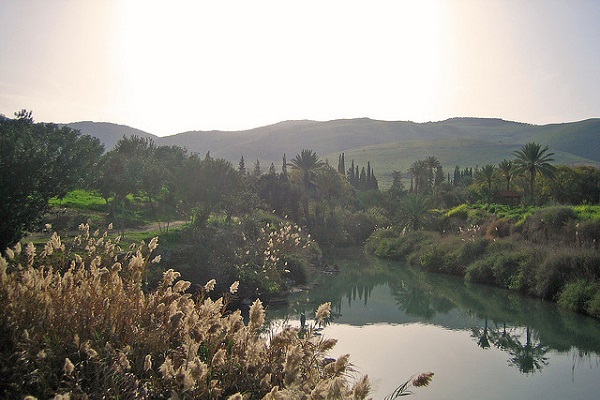
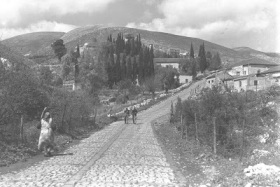
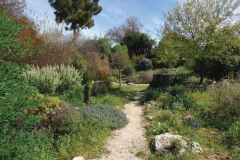
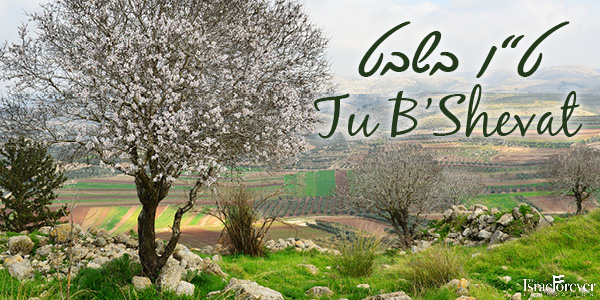



Leave a Comment on Israel Forever